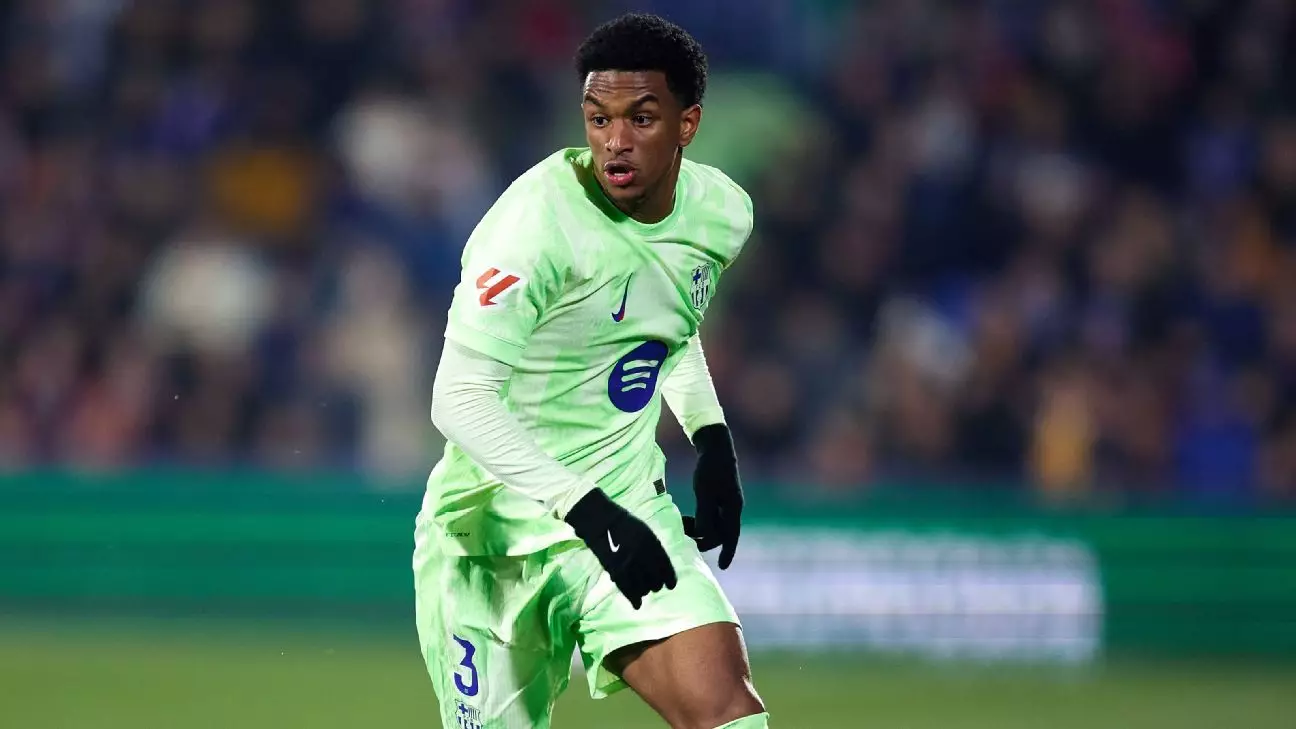The realm of football, celebrated for its vibrant diversity and unifying spirit, has continuously been marred by incidents of racism, as underscored by the recent experience of FC Barcelona defender Alejandro Balde. Following a LaLiga match against Getafe, Balde publicly disclosed that he faced racial abuse from sections of the home crowd at the Coliseum. Such revelations, although disheartening, are alarmingly not isolated events but rather indicative of a wider systemic issue plaguing Spanish football and society at large.
Balde’s disclosure during a post-match interview with Movistar serves not only to deepen the conversation surrounding racism in sports but also emphasizes the importance of addressing these matters effectively and expeditiously. The player emphasized that multiple racist insults were directed towards him during the first half of the match. His proactive approach in notifying the referee of the incidents illustrates a crucial step towards accountability in the face of discrimination. It raises questions, however, about the sufficiency of existing protocols to protect players and ensure a safe environment during matches.
LaLiga has established a protocol intended to address incidents of racial abuse; however, the efficacy of this protocol remains a topic of scrutiny. Upon being informed of the incidents, the referee activated the league’s anti-racism measures, signaling a procedure that is supposed to halt the game and address ongoing misconduct. Balde’s comments reveal uncertainty about the procedures that follow such incidents once they are reported.
The protocol entails a public announcement over the stadium’s PA system, indicating the reasons for the interruption and stating that a continued display of racial abuse would result in players leaving the pitch. This approach, while necessary, calls into question its effectiveness in deterring such behavior, particularly in light of its sporadic implementation and the lack of stringent repercussions for offenders. It is essential for authorities to assess the impact of this protocol and consider whether it might need recalibration in response to the growing incidents of racism in football.
Following the incident, Barcelona’s coach Hansi Flick made a powerful statement condemning the racist behavior directed at Balde. Flick’s assertion that there is “no space for this in football or in life” reflects the collective responsibility that clubs, players, and fans share in combating racism. His call for those who engage in or witness discrimination to take action against it resonates with the growing need for solidarity and widespread societal change.
It is crucial that clubs not only reject such abhorrent behavior but actively engage in campaigns promoting inclusivity and awareness. Football clubs, with their significant platforms and community engagement, play a pivotal role in eradicating racism. Initiatives promoting education, community outreach, and awareness can help foster an environment that discourages discrimination and promotes mutual respect.
Balde’s experience is perhaps only the tip of the iceberg in a longstanding pattern of racial abuse seen in Spanish football. The recent incidents are compounded by other reports, such as that of Elche’s Bambo Diaby facing similar abuse during a match against Sporting Gijón. The immediate identification of alleged perpetrators by local police demonstrates a step in the right direction, but it raises the question of why these situations continue to arise and escalate without adequate intervention.
Prominent figures like Real Madrid’s Vinícius Júnior have been targeted multiple times and famously highlighted the pressing need for systemic change in dealing with racism in sports. Recent legal actions, including the imprisonment of three Valencia fans for racially abusing Vinícius, further illustrate the gravity of the situation. However, these measures must be part of a broader, intensified effort to dismantle the culture of racism that persists in football.
As Spanish football grapples with its racism crisis, it is imperative that stakeholders—players, clubs, authorities, and fans—unite in fostering an environment devoid of hate and discrimination. The responsibility lies not only with those directly implicated but with everyone who participates in or observes the sport.
Education is a vital component in this journey, an investment into future generations that reinforces respect and understanding. Addressing the ingrained attitudes that allow racism to flourish is a complex but essential task that requires resilience and commitment. The time for organizations like LaLiga, as well as regional and global football governing bodies, to take decisive action has never been more crucial. There must be an unwavering stand against racism, ensuring that football remains a true celebration of diversity.

